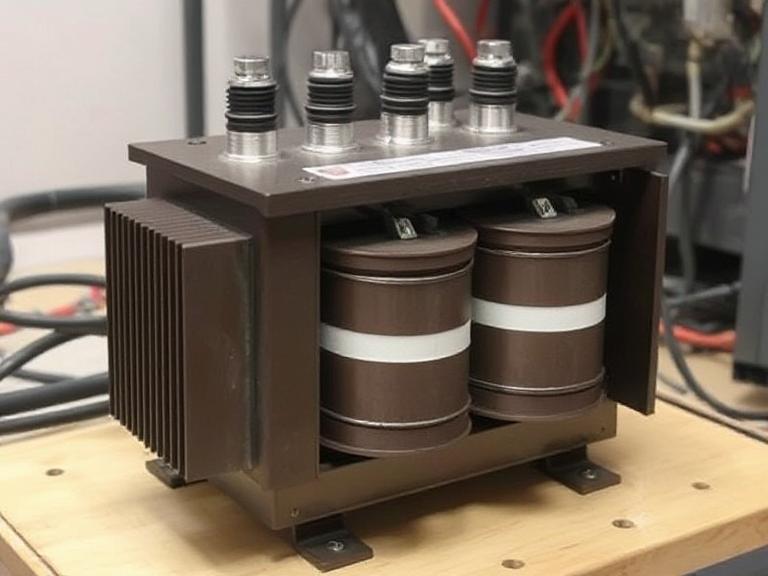In modern power systems, step-up 3-phase transformers play a crucial role in improving transmission efficiency by increasing voltage levels for long-distance electricity transportation. Choosing the right type of step-up transformer is essential for ensuring safety, reliability, and performance. In this article, we explore the types of 3-phase transformers suitable for step-up applications, focusing on their characteristics, use cases, and how high-quality products from Junengda Electrical can meet industry demands.

Table of Contents
- What is a Step-Up Transformer?
- Role of 3-Phase Transformers in Power Systems
- Types of 3-Phase Step-Up Transformers
- Applications of Step-Up Transformers
- Junengda Transformers for Step-Up Needs
- How to Choose the Right Step-Up Transformer
- Summary Table: Key Takeaways
What is a Step-Up Transformer?
A step-up transformer is a type of transformer that increases voltage from a lower to a higher level. It has a higher number of turns on the secondary coil compared to the primary coil, resulting in a voltage increase. These transformers are critical in power generation stations where low-voltage electricity needs to be transmitted over long distances at high voltage levels to reduce losses.
Basic Function
- Increases voltage for efficient power transmission
- Reduces energy loss during long-distance travel
- Transfers energy with high efficiency
Role of 3-Phase Transformers in Power Systems
3-phase transformers are used extensively in industrial and utility-scale power systems. They are more efficient and reliable than single-phase systems, especially for high-load applications. A 3-phase step-up transformer is often installed between a generator and transmission line to elevate the voltage level before electricity is delivered to distant locations.
Benefits of 3-Phase Step-Up Transformers
- Higher efficiency in handling large power loads
- Compact design relative to three separate single-phase units
- Suitable for continuous and heavy-duty applications
Types of 3-Phase Step-Up Transformers
There are several types of 3-phase transformers designed for step-up applications. Choosing the right one depends on factors such as voltage requirements, installation environment, and usage purpose.
1. Oil-Immersed Power Transformers

These are traditional and most commonly used for step-up applications in substations and power plants.
- Excellent cooling performance due to oil immersion
- High capacity for voltage and current
- Durable and long-lasting
2. Dry-Type Transformers

These use air instead of oil for cooling. Suitable for indoor installations or environmentally sensitive areas.
- Safe and eco-friendly
- Requires less maintenance
- Ideal for schools, hospitals, and malls
3. Pad-Mounted Transformers
These are enclosed in locked metal boxes and installed on the ground, often used in urban or commercial areas.
- Compact and tamper-proof design
- Pre-installed for easy connection
- Supports both step-up and step-down uses
4. Compact Substations
Also known as unit substations, these integrate transformers, switchgear, and protection in one package.
- Used for urban and space-limited environments
- Plug-and-play capability
- Can include 3-phase step-up functionality
Applications of Step-Up Transformers
Where Are Step-Up Transformers Used?
- Power generation stations – Boosting voltage for transmission
- Industrial zones – Where large equipment needs higher voltage
- Renewable energy systems – Solar or wind farms often need voltage elevation before grid integration
Importance in Grid Stability
- Helps minimize transmission loss
- Supports stable voltage across the grid
- Maintains safe power flow and distribution
Junengda Transformers for Step-Up Needs

Junengda Electrical is a high-tech enterprise specializing in the research, development, and manufacturing of premium power transmission products. Recognized as a supplier to Fortune 500 companies, Junengda offers a wide array of 3-phase transformers suitable for step-up applications.
Recommended Junengda Products
- Pole Mounted Transformers
- Compact Substations
- Power Transformers
- Oil-immersed Transformers
- Pad Mounted Transformers
- Dry-type Transformers
- Distribution Transformers
- 3-Phase Transformers
Why Choose Junengda?
- Advanced Production Facilities with cutting-edge testing labs
- R&D-Driven Innovation powered by senior engineers
- Customer-Centric Approach with tailored solutions
- Global Supply Network ensuring fast delivery and support
- Comprehensive After-Sales Service backed by expert teams
“Electricity Drives the Future, Service Achieves Excellence.” Junengda stands by this philosophy with top-tier electrical solutions globally.
How to Choose the Right Step-Up Transformer
Key Considerations
- Voltage Requirement: Know your input and output voltage ranges.
- Environment: Outdoor (oil-immersed or pad-mounted) vs. indoor (dry-type).
- Space Constraints: Use compact substations if area is limited.
- Load Capacity: Choose a transformer that matches your peak load usage.
- Compliance: Ensure transformers meet local grid codes and safety standards.
Pro Tip
Always consult with transformer experts like Junengda Electrical to ensure the product is optimized for your unique application scenario.
Summary Table: Key Takeaways
| Transformer Type | Cooling Method | Ideal Use | Step-Up Suitability |
|---|---|---|---|
| Oil-Immersed Transformer | Oil | High-power transmission | Excellent |
| Dry-Type Transformer | Air | Indoor environments | Good |
| Pad Mounted Transformer | Oil | Urban and public grid access | Very Good |
| Compact Substation | Mixed | Integrated systems | High |
| 3-Phase Transformer | Depends on type | Heavy-duty industry | Optimal |
